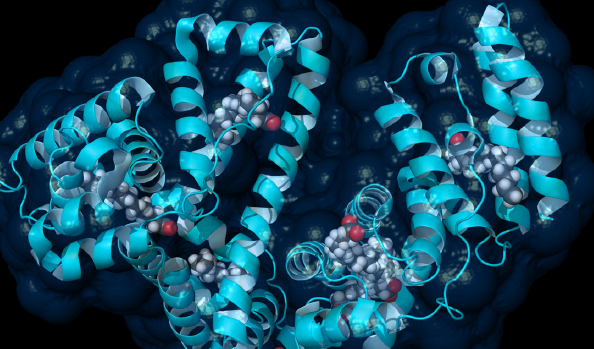Application Proteomics
Product Newomics MEA Chip
Instrumentation
Samples
Performance
Introduction
Proteomics of small volumes of biological samples down to single cells has progressed rapidly. However, the sensitivity and reproducibility of ultralow flow LC-MS for proteomics remains a challenge. We developed a silicon-based, plug-and-play, nanoflow MEA chip to directly address this challenge. Our MEA chip monolithically integrates an LC column, an ESI emitter, and a post-column inlet (PCI). Employing silicon-based monolithic fabrication … (Read More)
Application Proteomics
Product Newomics MnESI Source for Thermo Scientific Legacy Mass Spectrometers; M3 Emitter
Instrumentation Thermo Scientific PepMap C18 columns on a Thermo Scientific Exactive Plus Mass Spectrometer
Samples Thermo Scientific Pierce HeLa Protein Digest Standard; human plasma digest prepared by Thermo Scientific EasyPep Mini MS Sample Prep Kit
Performance 3.8 sensitivity gain
Introduction
Liquid chromatography-mass spectrometry (LC-MS) is the enabling technology for global-scale analysis of proteins (proteomics). Nanoflow LC-MS (flow rate < 1 µL/min) is routinely used to achieve high sensitivity for identifying and quantifying thousands of peptides and proteins in small volumes of biological samples, but lacks robustness and throughput (i.e., speed). By contrast, microflow LC-MS (�ow rate 1-50 µL/min) typically achieves higher … (Read More)
Application Proteomics
Product MnESI Source for Thermo Scientific Legacy Mass Spectrometers; Flow Splitting Kit for Microflow LC-MS; M3 Emitter
Instrumentation Thermo Fisher PepMap™ C18 columns on a Quantiva™ mass spectrometer for SRM analysis and a Q Exactive™ Plus mass spectrometer for PRM analysis
Samples Human plasma
Performance 50-fold higher than high-flow and 2.3-fold higher than conventional microflow LC-MS for proteomics.
Introduction
Liquid chromatography-mass spectrometry (LC-MS) is the enabling technology for the global-scale analysis of proteins (proteomics). In order to identify and quantify peptides and proteins in small volumes of biological samples, nanoflow LC-MS (flow rate < 1 mL/min) is routinely used in order to achieve high sensitivity. However, nanoflow LC-MS lacks robustness and throughput (i.e., speed). On the other hand, high-flow LC-MS … (Read More)



